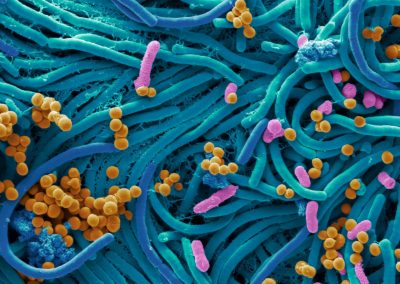
Free
60mins
Social Media & Eating Behaviour:
How can we positively influence eating behaviours?
Dr Brian Power PhD
Tuesday 9 May 2023 20:00–21:00 BST
CONTENT AND LEARNING OBJECTIVES:
Whether you follow, like or reject social media, it cannot be ignored. Social media’s effect on peoples’ food choices is controversial, and may undermine healthy eating behaviours. Improving our understanding in this area is important as it can help us to better guide people in their use of social media food content.
In this Journal Club session, we’ll discuss a web-based conversation study exploring the influence social media can have on young adults’ dietary behaviours.
This session covers:
- How social media influences dietary behaviours
- Social media use and its application in eating behaviour change research and practice
- Regulation of social media food advertisements
- How to critically analyse a published qualitative research article
Watch this webinar to
Gain clear understanding of:
- Influences of social media on the young adults’ dietary behaviour of young adults’
- Determinants of young adult’s positive health and nutrition behaviour changes
- Persuasive aspects of social media on food choice
Be aware of:
- Appearance-based health messages
- Social media use and its application in eating behaviour change research and practice
- Regulation of social media food advertisements
Be able to:
- Explain the main features of social media food environments
- Describe the stages of analysing web-based conversations about eating behaviours and social media use
- Critically analyse a published qualitative research article
Help us to continue providing expert nutrition learning
If MyNutriWeb has helped you deepen your knowledge of dietary and nutritional subjects, join us to help support and educate people to eat well for themselves and the planet. Read more...

Expert speaker
Dr Brian Power PhD
Lecturer at Atlantic Technological University and Honorary Senior Dietitian at University College London Hospitals NHS Foundation Trust
Dr Brian Power is a Lecturer at the Atlantic Technological University and Honorary Senior Dietitian at University College London Hospitals NHS Foundation Trust. In his current academic and clinical roles, Brian contributes to research-based advances with a particular focus on understanding and supporting eating behaviour change.
Paper reference
Friedman V, Wright C, Molenaar A, McCaffrey T, Brennan L, Lim M. The Use of Social Media as a Persuasive Platform to Facilitate Nutrition and Health Behavior Change in Young Adults: Web-Based Conversation Study. J Med Internet Res 2022;24(5):e28063

About Journal Club Chair, Dr Caroline Childs
Each Journal Club session is chaired by Dr Caroline Childs, Nutrition and Metabolism subject lead in Medicine at the University of Southampton. She received student-nominated awards for ‘most engaging lecturer’ and ‘best pastoral support’ and a colleague-nominated award for teaching excellence. Dr Childs is a Nutrition Society Ambassador and a South East Regional Representative for the Association for Nutrition.
As she says, “Developing skills in critical appraisal is an essential part of being a competent nutrition professional – whether you’re a dietitian, nutritionist or health professional specialising in nutrition.”
APPRAISING RESEARCH PUBLICATIONS
Nutrition research reported in the media often highlights mixed or contradictory results between studies. So, as a nutrition professional, how can you ensure you use the strongest available evidence to inform your practice?
CPD CERTIFICATE & LEARNING MATERIALS
This webinar has been approved for CPD by the AfN

Once you have viewed a full recorded session the mynutriweb team will review and arrange to send you your certificate via email from hello@mynutriweb.com within two weeks of viewing the session.
Popular Now

South Asian Eatwell Guide

Reversing Type 2 Diabetes

Professor Bruno Pot: Probiotics and the gut microbiota: key players in health?
This website is intended only for students or professionals working in food, nutrition and health. If this is you, please click to continue.



